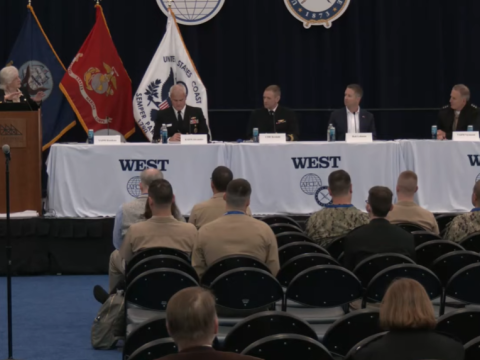She Said/He Said: So Much for Building Trust
North Korea is testing nuclear weapons, fighting is intensifying in Pakistan's Swat Valley, and the White House 60 Cyber Review has been released, but the political brawl over whether Speaker Nancy Pelosi was or was not mislead by the CIA regarding the use of waterboarding seems to be confirming the point I was making in these pages last month about the lack of trust between the Intelligence Community (IC) and Congress.
The perils of this mistrust became manifest for the whole nation to see when the Obama White House, against the advice of CIA Director Leon Penatta and every former CIA Director with a pulse, released the Bush Administration memos authorizing the use of enhanced interrogation techniques (EIT) against high value Al Qaeda detainees. This quickly deteriorated into Congressional calls from some in the Democratic Majority for hearings and possible criminal prosecutions for those who authorized or conducted EIT under the rubric of violating
I pretty much saw all this as petty partisan posturing until Speaker Pelosi decided that Inman’s Third Rule of Intelligence "when you are explaining, you are losing" didn’t apply to her. In what I can only describe as a "give me more bullets I still have toes left” press conference, the Speaker explained that the CIA had "mislead Congress" when it briefed the HPSCI on EITs . Because misleading Congress is a crime, CIA Director Penatta apparently felt compelled to release CIA notes on what it briefed to Congress on EITs and remind all that it is not CIA policy to mislead Congress.
Now we have a classic "he said/she said" controversy over EITs where "he" is the Director of the CIA and "she" is the Speaker of the House! Obvious solution to supporters of the Speaker is a "truth commission" to discern who in the Congress was told what when by the CIA about EITs. The authorization to employ EITs by such a truth commission was cleverly left as an open question.
Just when I am thinking it can't get any worse than this publicly tawdry display of personal ill will between Pelosi and Panetta born of self-protection, this situation escalates into dueling national addresses between President Obama and former Vice President Cheney on whether or not EITs are necessary for national security and sub-rosa if they do or do not constitute torture under U.S. law. Forgetting how this Obama-Cheney debate over necessity if not legality of EITs is playing out on the
First, we can look for every major IC decision the Congress makes to have a partisan debate associated with it.
Second, we can expect the Congress to be more probing as it staffs and reviews IC actions ---- especially funding actions. I’ll take the "under" on no Intel Authorization Bill for the 5th straight year in this poisoned partisan environment.
Third, look for the IC to become even more risk adverse and wanting documentation of approval for activities that politicians need and want plausible deniability before proceeding
Fourth, anticipate Nancy Pelosi getting even in terms of embarrassing the CIA and by extension the IC while others in the Congress (from both parties) try to use this debate undermine Nancy Pelosi political authority as Speaker
These are all "inevitable surprises" based on what is too loudly already in the public domain. Intelligence Professionals like to think of themselves as "shadow warriors" and as Mike Hayden observed when he went to be CIA Director that his first job was to get CIA off of the front page of the Washington Post because publicity is antithetical to the practice of intelligence. If Speaker Pelosi and President Obama don't understand this basic condition for the IC to be effective, they will learn it soon enough through experience.
The more strategic question brought into focus here though, is how can intelligence be practiced effectively under the Constitution when the Congress and the IC don't trust each other? If a CIA Director, who is a creature of the House of Representatives, feels compelled to defend his agency's integrity because it is being questioned by the Speaker of the House on its veracity about waterboarding Al Qaeda mission planners, what happens when the issues become setting the balance between security and civil liberties as the practices of domestic and foreign intelligence converge or the use of cyber effects with potentially lethal impacts? To be effective in a threat environment that puts the
That’s what I think; what do you think? Joemaz


Comment
Congress as it is presently
Thanks Pete. It may be a
Nice run down of events Joe,
Mark thanks for the feedback!
you're right about her
Thanks Mark! I did notice
Comments